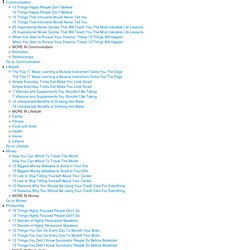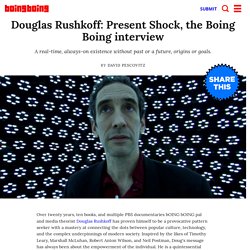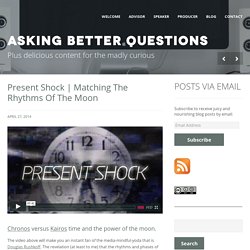

Body language, not facial expressions, broadcasts what's happening to us. If you think that you can judge by examining someone's facial expressions if he has just hit the jackpot in the lottery or lost everything in the stock market -- think again.

Researchers at the Hebrew University of Jerusalem and at New York University and Princeton University have discovered that -- despite what leading theoretical models and conventional wisdom might indicate -- it just doesn't work that way. Rather, they found that body language provides a better cue in trying to judge whether an observed subject has undergone strong positive or negative experiences. In a study published this week in the journal Science, the researchers present data showing that viewers in test groups were baffled when shown photographs of people who were undergoing real-life, highly intense positive and negative experiences.
The study was led by Dr. Hillel Aviezer of the Psychology Department of the Hebrew University, together with Dr. 7 Morning Hacks to Jumpstart Your Day. I’ll be the first to admit that I’m really not a morning person.

I’ve tried to get myself going in the early hours of the morning, but I’ve always been more of a night owl – my creative juices seem to flow better in the later hours. So I’d be the last person to suggest that you need to force yourself out of bed before your body and mind are really ready to do so. What Your Body Does In 30 Seconds. This column will change your life: The emotional calendar. The Harvard neuropsychiatrist John Sharp spends a month with his family each summer on the island of Nantucket, so it was doubly problematic that year after year, halfway through, he'd start to feel inexplicably anxious and grouchy: first because a month on Nantucket isn't exactly anything to complain about, and second because he's a neuropsychiatrist; explaining bad moods is his job.

It took much beach-front speculation, he recalls, before he finally made the connection to his teenage self, nervous about the new school year. Deep inside (actually, we can be more specific: in his hippocampus), he was still a frightened schoolboy. His moods were at the mercy of the calendar. These seasonal emotional shifts – the fillip from the first identifiably warm spring breeze, say, or the sinking feeling induced by shortening late-summer evenings – are such a fixture in our lives that they can become near-invisible. Oliver.burkeman@guardian.co.uktwitter.com/oliverburkeman. The Emotional Calendar: Understanding Seasonal Influences and Milestones to Become Happier, More Fulfilled, and in Control of Your Life: John R. Sharp: 9781250002624: Amazon.com: Books.
VPRO Tegenlicht: VPRO Tegenlicht: De herovering van het nu kijk je op NPO.nl. De Nederlandse Publieke Omroep maakt gebruik van cookies.

Door verder gebruik te maken van deze website, heb je toestemming gegeven voor het plaatsen en uitlezen van cookies op de websites van de Nederlandse Publieke Omroep. Meer weten over deze cookies, of wil je de cookie-instellingen voor onze websites wijzigen? Klik dan hiernaast op meer informatie. Waarom cookies? De Nederlandse Publieke Omroep maakt gebruik van cookies.
Klik hier voor meer informatie over cookies en een overzicht van de sites waar je toestemming voor geldt. Cookie instellingen aanpassen? De cookie instellingen voor de websites van de Nederlandse Publieke Omroep zijn te allen tijde te wijzigen. Cookie-instellingen aanpassenAkkoord. Rushkoff - present shock. Douglas Rushkoff: Present Shock, the Boing Boing interview. Over twenty years, ten books, and multiple PBS documentaries bOING bOING pal and media theorist Douglas Rushkoff has proven himself to be a provocative pattern seeker with a mastery at connecting the dots between popular culture, technology, and the complex underpinnings of modern society.

Inspired by the likes of Timothy Leary, Marshall McLuhan, Robert Anton Wilson, and Neil Postman, Doug's message has always been about the empowerment of the individual. He is a quintessential happy mutant. Whether he's writing about social contagions, video games, advertising, religion, or the Occupy Movement, his focus is on how narrative can be used by Control to coerce, and as a tool of resistance.
William S. Burroughs once wrote, "Is Control controlled by its need to control? Matching The Rhythms Of The Moon. Chronos versus Kairos time and the power of the moon.

The video above will make you an instant fan of the media-mindful-yoda that is Douglas Rushkoff. The revelation (at least to me) that the rhythms and phases of the moon directly correspond with the neurotransmitters in the brain stopped me in my tracks: 1st week of the new moon—Acetylcholine:associated with new ideas, making friends, and being open minded;2nd week of the new moon—Serotonin:all about getting things done, being industrious and reaching conclusions;3rd week of the moon cycle—Dopamine:it makes you want to relax and enjoy being with people (not about work or getting things done);Last week of the cycle—Norepinephrine:makes you very analytical, organising things and moving above the situation to figure out the structures which underline things.